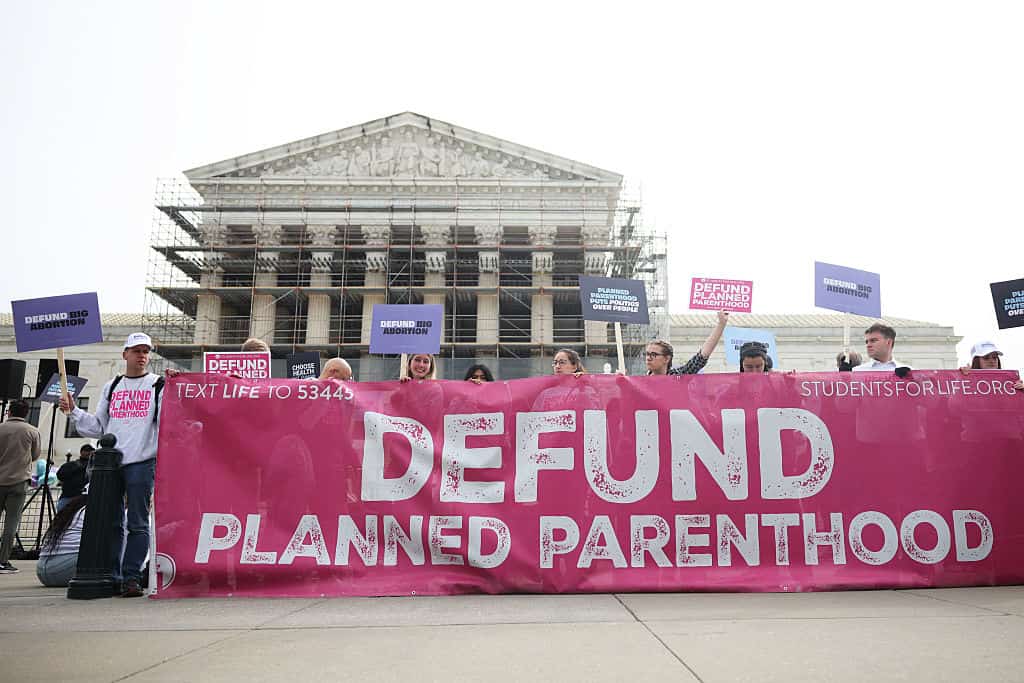Inflation Reduction Act Misnamed, According to Experts. What it Means for Families.

The slimmed down version of President Biden’s $3.5 trillion Build Back Better Act known as the Inflation Reduction Act, passed the Senate over the weekend along strict party lines.
Not surprisingly, reaction to the bill’s passage was partisan in nature.
“Today, Senate Democrats sided with American families over special interests, voting to lower the cost of prescription drugs, health insurance, and everyday energy costs and reduce the deficit, while making the wealthiest corporations finally pay their fair share,” Mr. Biden said in a White House press statement.
Sen. Bill Cassidy, R-La., who is a member of the Senate Finance Committee, told Fox News Digital, “The only way the Inflation Reduction Act will decrease inflation is by raising taxes on middle-income and lower-income families so that they don’t have money to spend,” he said. “In health care, we call that killing the patient to heal the disease. It is not how to treat American taxpayers
So, what’s really in it – and what impact will it have on families?
According to the non-partisan Congressional Budget Office, the bill will have “a negligible effect on inflation” in 2022, and somewhere between a 0.1 percentage point lower and a 0.1 percentage point higher effect in 2023. Another non-partisan group, the Penn Wharton Budget Model from the University of Pennsylvania’s Wharton School, says the bill’s impact on inflation is “statistically indistinguishable from zero.”
The Washington Post calls it a “climate bill,” part of a $369 billion package of tax subsidies and other measures “designed to speed up clean energy transition.”
The climate spending is part of package of $433 billion in new spending. Besides the “green” agenda it furthers, it also promises a drop in drug prescription prices and increased subsidies to low-income families on Obamacare.
It pays for the new spending by increasing taxes by $739 billion.
So, if the administration spends $433 billion and increases taxes to pay for it, how does that help families?
Some say that lower drug prescription prices, plus more Obamacare subsidies, will lower costs on items important to certain families. And it will all be paid for, according to Democrats, by raising taxes on corporations through a 15% “corporate alternative minimum tax.”
The bill’s description promises that “there are no new taxes on families making $400,000 or less and no new taxes on small businesses.”
But is that really the case? Are there any predictable negative consequences they’re not talking about?
Tax policy watchdogs warn that the bill will cost American workers jobs and wage increases.
The Tax Foundation, which calls itself the nation’s leading independent tax policy nonprofit, reports the bill will reduce GDP by 0.1 percent and cost about 27,000 jobs, hitting the coal, auto and truck industries the hardest.
The Congressional Joint Committee on Taxation (JCT) projects that American taxpayers, not just corporations, will be hit with tax increases because of the bill. JCT’s analysis shows that in 2023, individuals making less than $10,000 per year would pay 3.1% more in taxes, and those making between $20,000-$30,000 would see a 1.1% tax increase.
And by 2031, those earning below $400,000 are projected to pay as much as two-thirds of the additional tax revenues collected that year.
The bill’s increased taxes on corporations, and new taxes on natural gas operate as a tax on consumers, Americans for Tax Reform warns. That happens because corporations don’t just absorb the increased tax hit, they compensate by increasing the prices of the products they produce, laying off workers or imposing hiring freezes, and delaying wage increases.
One final thing about the bill. It authorizes $80 billion for the hiring of 87,000 new IRS agents to perform audits that will supposedly help pay for the other spending in the bill.
Frustration with government and its representatives is nothing new, of course. You’ll recall the passage in the Gospel of Matthew when the Pharisees tried to trip up Jesus by asking Him whether it was lawful to pay taxes to the Roman emperor Caesar.
“Show me the coin used for paying the tax?” requested Jesus. After they did, Jesus asked, “Whose image is this? And whose inscription?”
“Caesar’s,” they replied.
Jesus then replied. “So give back to Caesar what is Caesar’s, and to God what is God’s” (Matthew 22:19-21).
At the heart of Jesus’ response was a reminder that even though the religious people didn’t like the secular government, the mere fact they had the coins and used them was an indication they were part of the system itself. As the old saying goes, “In for a dime, in for a dollar.”
Furthermore, we know from reading Paul’s letter to the Romans, “Everyone must submit himself to the governing authorities, for there is no authority except that which God has established” (13:1).
In other words – God will often allow what He might not even like. But it’s up to us to do our part by putting feet to our faith and working for policies more in line with biblical beliefs. Jesus’ command to give to God what is God’s should also challenge us. We may not like to pay taxes, and for any number of reasons. So much of our tax dollars are wasted on foolish and even immoral things. Yet are we also giving to God what we should? Are we obeying God’s commands to turn all of ourselves over to Him?
Benjamin Franklin opined nothing is certain in this world besides death and taxes. And it was the late Will Rogers who once quipped, “The only difference between death and taxes is that death doesn’t get worse every time Congress meets.”
Photo from Shutterstock.
ABOUT THE AUTHOR

Bruce Hausknecht, J.D., is an attorney who serves as Focus on the Family’s judicial analyst. He is responsible for research and analysis of legal and judicial issues related to Christians and the institution of the family, including First Amendment freedom of religion and free speech issues, judicial activism, marriage, homosexuality and pro-life matters. He also tracks legislation and laws affecting these issues. Prior to joining Focus in 2004, Hausknecht practiced law for 17 years in construction litigation and as an associate general counsel for a large ministry in Virginia. He was also an associate pastor at a church in Colorado Springs for seven years, primarily in worship music ministry. Hausknecht has provided legal analysis and commentary for top media outlets including CNN, ABC News, NBC News, CBS Radio, The New York Times, the Chicago Tribune, The Washington Post, The Washington Times, the Associated Press, the Los Angeles Times, The Wall Street Journal, the Boston Globe and BBC radio. He’s also a regular contributor to The Daily Citizen. He earned a bachelor’s degree in history from the University of Illinois and his J.D. from Northwestern University School of Law. Hausknecht has been married since 1981 and has three adult children, as well as three adorable grandkids. In his free time, Hausknecht loves getting creative with his camera and capturing stunning photographs of his adopted state of Colorado.
Related Posts

Is it ‘Voter Suppression’ to Require Proof of Citizenship to Vote?
February 10, 2026

Education Department Celebrates National School Choice Week
January 30, 2026

New York Ends Fight to Force Nuns to Pay for Abortions
January 27, 2026

